Mutt dogs, also known as mixed-breed dogs, are a fascinating group of canines that come from diverse genetic backgrounds. Unlike purebred dogs, mutts don’t adhere to specific breed standards, making them wonderfully unique. In this article, we’ll explore various aspects of mutt dogs, from their physical appearance to their temperament and suitability as companions.
The Beauty of Mixed Breeds
Mutt dogs are the result of breeding between two or more different dog breeds. This mixing of genetic material leads to a wide variety of appearances, sizes, and temperaments. While purebred dogs often have predictable traits and characteristics, mutt dogs are like a box of chocolates – you never know what you’re going to get.
One of the most beautiful aspects of mutt dogs is their uniqueness. Each mutt dog is a one-of-a-kind individual, with a combination of traits from different breeds. This makes them truly special and adds to their appeal. Whether it’s their distinctive coat pattern, unusual eye color, or a mix of physical features, mutt dogs are sure to turn heads and spark conversations.
Basic Info
| Aspect | Description |
|---|---|
| Traditional Color | Varies widely; no specific color standard |
| Weight | Ranges from light to medium, depending on individual genetics |
| Size | Small to large, influenced by the mix of breeds |
| Dog Height | Varies significantly; no fixed height range |
| Lifespan | Typically 10 to 15 years |
| Price | Generally more affordable than purebred dogs |
| Suitable For | Families, singles, seniors—suitable for most households |
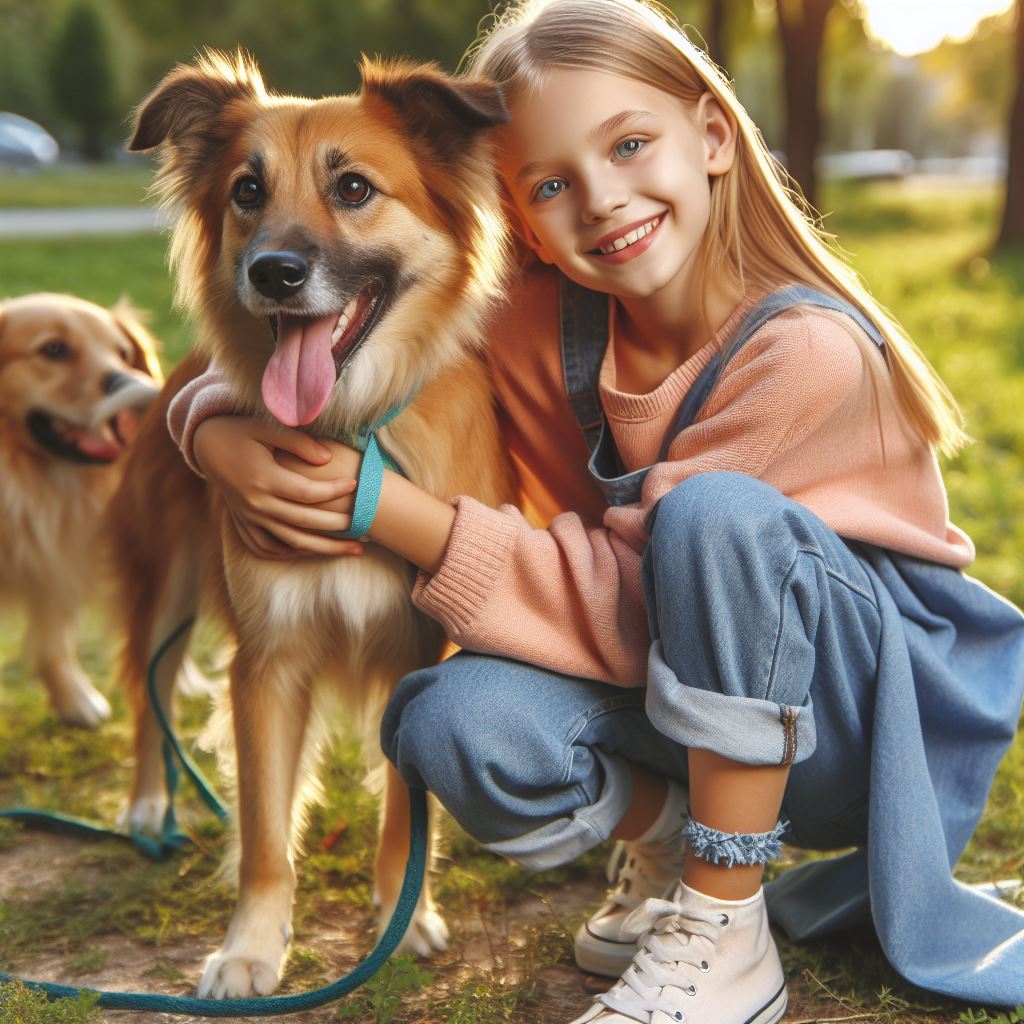
Mutt Dog with Girl
Physical Appearance
| Feature | Description |
|---|---|
| Facial Structure | Varies greatly; may have traits from multiple breeds |
| Coat | Can be short, long, curly, or wiry; depends on lineage |
| Nose | Usually black or brown, but colors can differ |
| Eyes | Diverse eye colors, shapes, and sizes |
| Ears | May be floppy, erect, or a mix of both |
| Muzzle | Length and shape vary; can resemble any contributing breed |
| Body | Sturdy, athletic, or compact—reflects the mix of genetics |
Quick Facts
| Aspect | Description |
|---|---|
| Temperament | Highly variable; depends on individual upbringing and genetics |
| Reproduction | Mutt dogs can reproduce naturally like any other dog |
| Playtime | Enjoys playtime with toys, other dogs, and humans |
| Intelligence | Smart and adaptable; can excel in various activities |
| Evolutionary Origins | Result of natural breeding over generations |
| Genetics | A mix of genetic material from various breeds |
| Breed Group | Not officially recognized as a specific breed group |
Games for Mutt Dogs
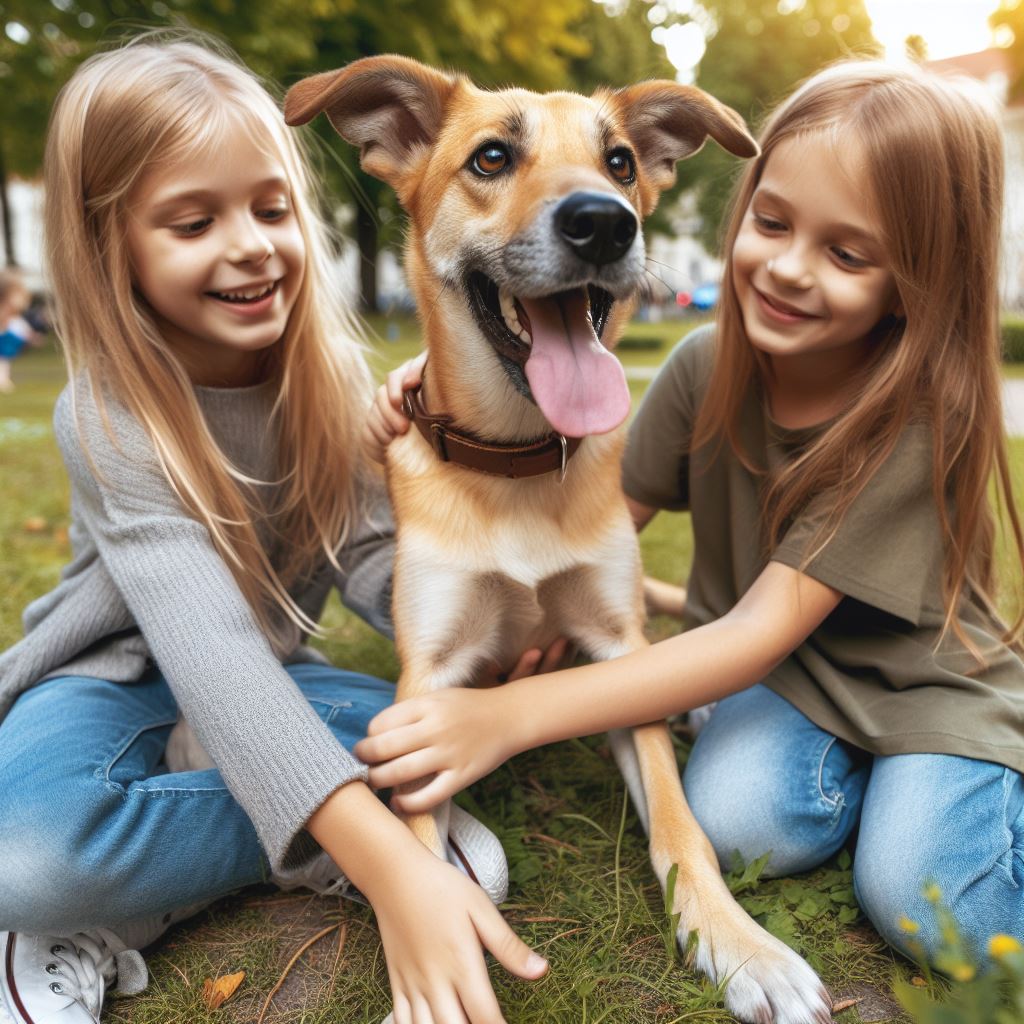
Mutt Dog are playing with Girl
| Indoor Games | Outdoor Games |
|---|---|
| Hide-and-Seek | Fetch (with a ball or frisbee) |
| Puzzle toys | Agility courses and obstacle runs |
| Treat-dispensing toys | Hiking and nature walks |
| Interactive playtime | Swimming (if they enjoy water) |
Special Key Points
| Aspect | Description |
|---|---|
| Adaptability | Excellent adaptability to various living environments |
| Senses | Keen senses, especially their sense of smell |
| Sleep Patterns | Varies individually; some are light sleepers, others deep |
| Loyalty | Devoted and loyal to their human companions |
Health and Longevity
Another advantage of mutt dogs is their overall health and longevity. Purebred dogs are often prone to certain genetic health issues due to their limited gene pool. In contrast, mutt dogs have a wider gene pool, which can reduce the risk of inherited diseases and health conditions.
Studies have shown that mixed breed dogs tend to live longer than purebred dogs. This is because they are less likely to inherit genetic disorders that are common in specific breeds. Additionally, mutt dogs often have a better immune system, which can help them fight off diseases and stay healthy.
Health and Caring
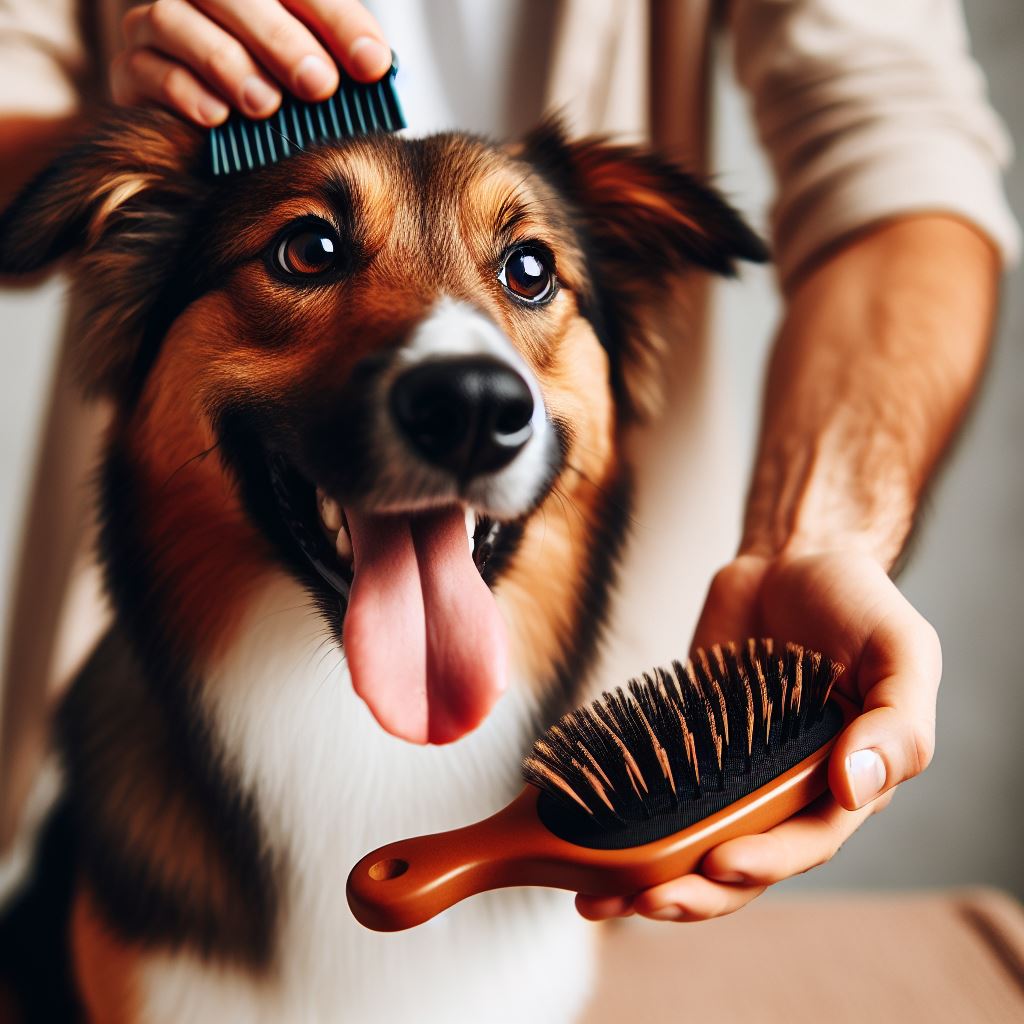
Mutt Dog taking Caring
Mutt dogs, also known as mixed-breed dogs, offer a delightful blend of traits and characteristics. Let’s explore their health, care, and what makes them special.
Read More: Common Health Issues in Dogs
Health Issues
Mutt dogs often enjoy better health than purebred dogs due to their genetic diversity. Their unique mix of genes reduces the risk of inherited diseases. Common health issues in mutts include:
- Joint Problems
- Skin Conditions
- Dental Issues.
Dog Food and Diet Requirements
Feeding mutt dogs requires attention to their individual needs. Here are some guidelines:
- Frequency: Puppies need more frequent meals (up to four times a day), while adult dogs can transition to two meals a day.
- Portion Control: Follow feeding guidelines based on the dog’s weight, age, and calorie content of the food. Adjust as needed to maintain a healthy weight.
- Quality: Choose high-quality dog food that meets their nutritional requirements.
Grooming
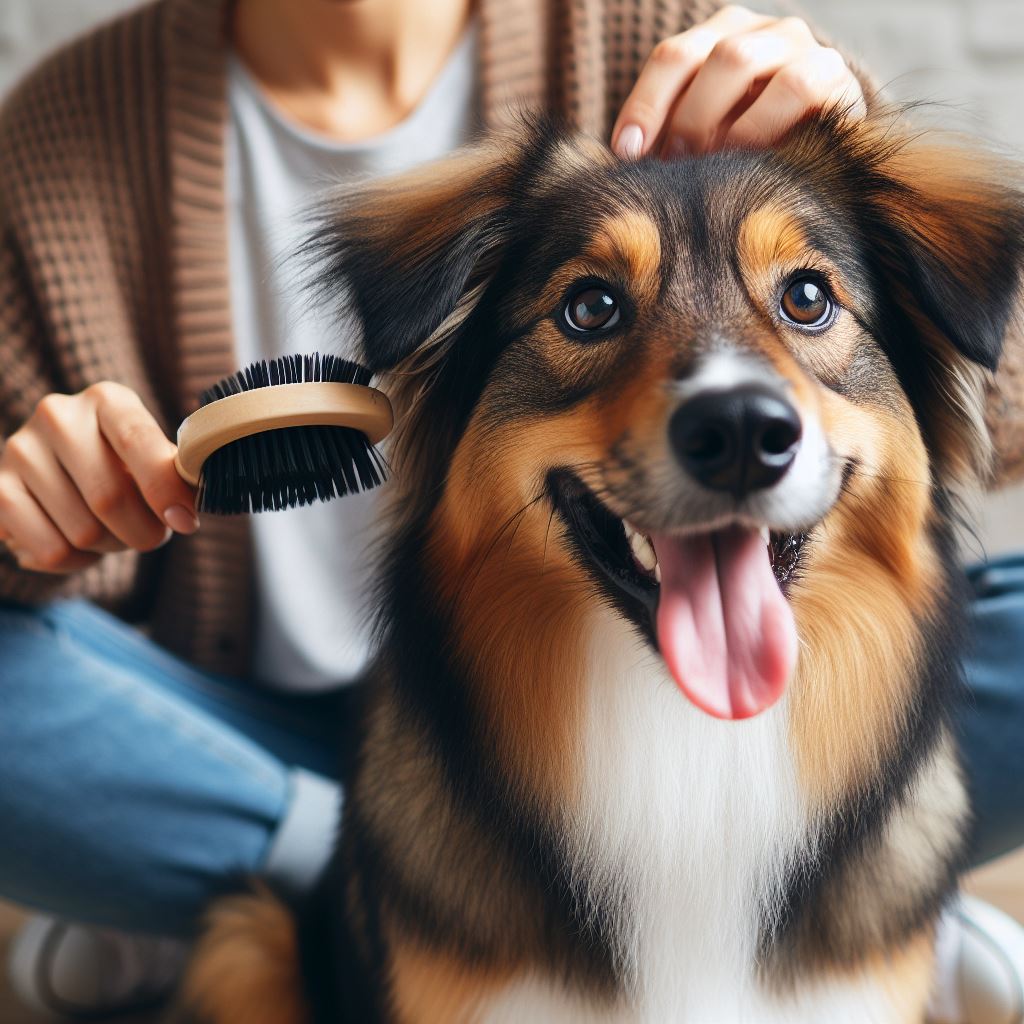
Mutt Dog taking Grooming
Regular grooming is essential for mutt dogs’ overall well-being. Brush their coat, trim nails, and clean ears. Regular grooming helps maintain their health and appearance.
Read More: The Art of Dog Grooming
Training
Mutt dogs are intelligent and adaptable. Positive reinforcement training works well for them. Focus on basic commands, socialization, and addressing any behavioral issues.
Exercise
Mutt dogs thrive on physical activity. Regular walks, playtime, and mental stimulation keep them happy and healthy.
Socialization
Early socialization is crucial. Expose mutt puppies to various people, animals, and environments to build confidence and prevent fear-based behavior problems.
Read More: The Importance of Dog socialization
Communication
Pay attention to your mutt’s cues. They’ll let you know when they’re hungry, tired, or need attention.
Care Taker
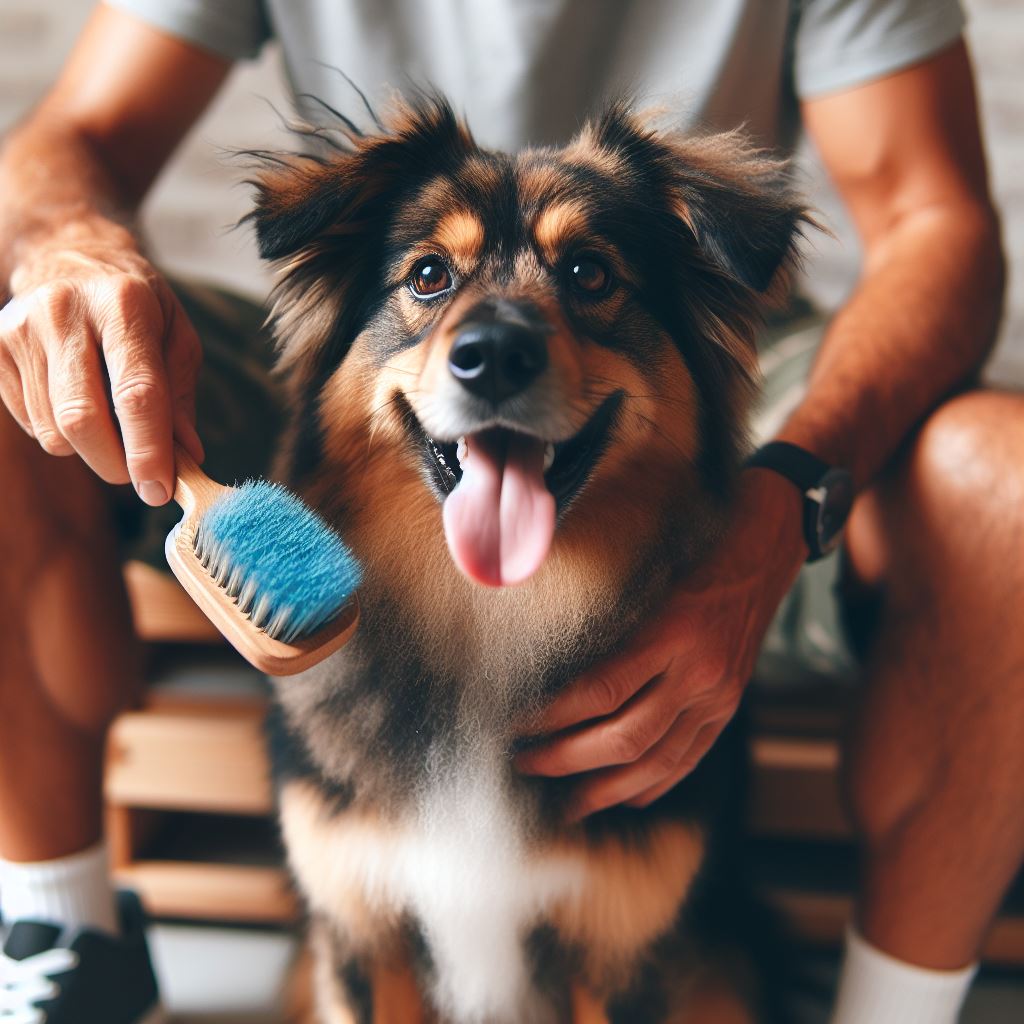
Mutt Dog with Caretaker
As a mutt owner, be patient, understanding, and committed. Provide love, care, and a safe environment.
Recognizing Mutt Dogs
Mutt dogs come in various shapes, sizes, and colors. Their unique appearance sets them apart. Look for a mix of features from different breeds.
Male Vs. Female
The difference between male and female mutt dogs is often subtle. Both can make wonderful companions. Consider their individual personalities and needs when choosing.
Read More : Red Boston Terrier: A Dog Lover’s Guide
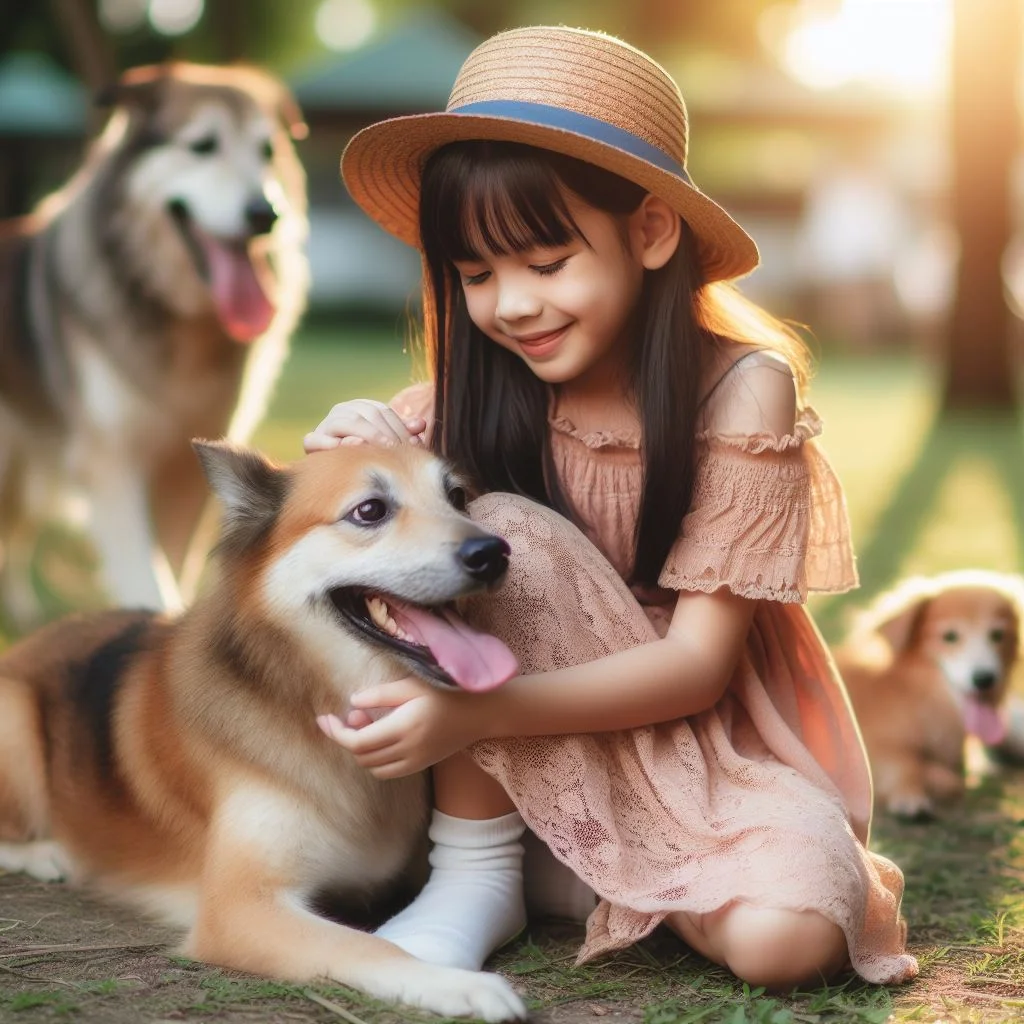
Mutt Dog are seating With Girl
Affectionate and Loyal Companions
One of the most endearing qualities of mutt dogs is their affectionate and loyal nature. Regardless of their breed mix, mutt dogs are known for their ability to form strong bonds with their human companions. They are often described as being more in tune with their owners’ emotions and are quick to provide comfort and support.
Mutt dogs are also highly adaptable and versatile. They can easily fit into any family dynamic and are known for their ability to get along with children, other pets, and even strangers. Their friendly and outgoing nature makes them excellent companions for individuals or families looking for a loving and sociable pet.
Adopting a Mutt Dog
If you’re considering adding a furry friend to your family, adopting a mutt dog is a wonderful option. Shelters and rescue organizations are filled with mixed breed dogs of all shapes, sizes, and ages, waiting for their forever homes. By adopting a mutt dog, you not only give them a second chance at life but also open your heart to a loyal and loving companion.
When adopting a mutt dog, it’s important to consider their individual needs and characteristics. While their appearance may catch your eye, it’s essential to focus on their temperament, energy level, and any specific requirements they may have. This will ensure a successful and fulfilling relationship between you and your new four-legged friend.
Read More: Kids Needs Mutts – How to love dogs – YouTube
Conclusion
Mutt dogs are a diverse and unique breed that offers a world of possibilities. Their individuality, good health, and affectionate nature make them a popular choice for dog lovers around the world. So, if you’re looking for a furry friend who will bring joy, love, and endless adventures into your life, consider adopting a mutt dog. They may just be the perfect addition to your family.
Frequently asked questions (FAQs)
What is a Mutt Dog?
A mutt dog, also known as a mixed-breed or mongrel, is a type of dog that results from a combination of different breeds. These dogs have a diverse genetic makeup, leading to unique appearances and temperaments. Unlike purebred dogs, mutts don’t adhere to specific breed standards, making them wonderfully unique.
How Can I Recognize a Mutt Dog?
Mutt dogs come in various shapes, sizes, and colors. Their unique appearance sets them apart. Look for a mix of features from different breeds—whether it’s their coat, facial structure, or body shape. Each mutt is a delightful blend of traits.
What Training Tips Work Well for Mutt Dogs?
Mutt dogs are intelligent and adaptable. Positive reinforcement training is effective. Focus on basic commands, socialization, and addressing any behavioral issues. Consistency and patience are key to successful training.
How Should I Feed My Mutt Dog?
Pay attention to their individual needs. Puppies need more frequent meals, while adult dogs can transition to two meals a day. Choose high-quality dog food based on their weight, age, and nutritional requirements. Proper portion control helps maintain a healthy weight.
Are There Health Advantages to Owning a Mutt Dog?
Yes! Mutt dogs tend to enjoy better health than purebred dogs. Their genetic diversity reduces the risk of inherited diseases. Common health issues in mutts include joint problems, skin conditions, and dental issues. Regular veterinary care ensures their well-being.
What Makes Mutt Dogs Special?
Mutt dogs possess a refreshing mix of qualities due to their diverse ancestry. Their unpredictability is appealing—since they come from various breeds, they exhibit fascinating combinations of traits. This diversity often results in healthier dogs overall, as mixed breeds are less prone to genetic disorders.

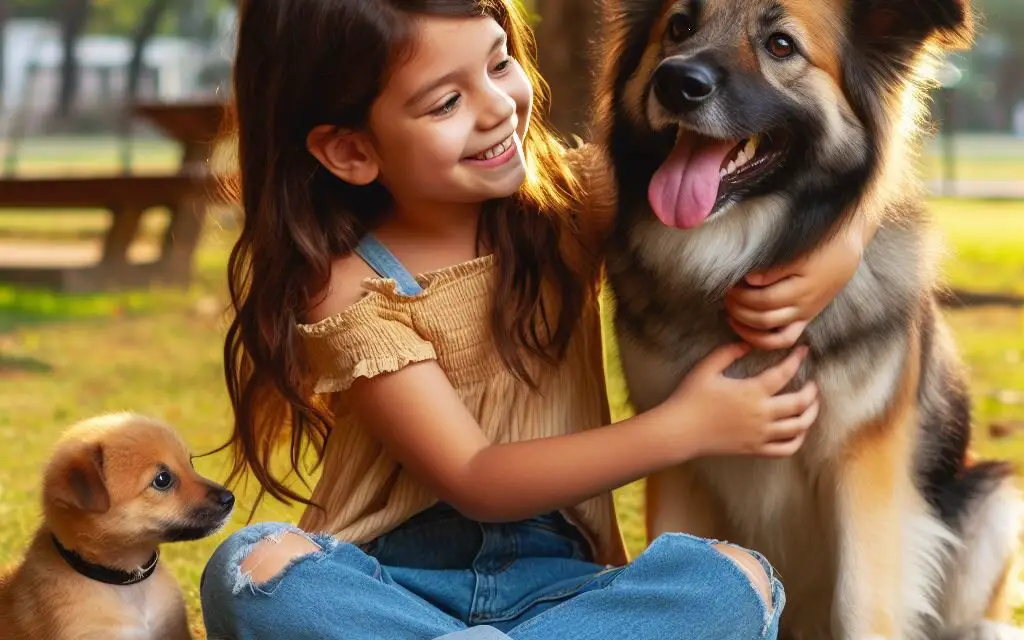
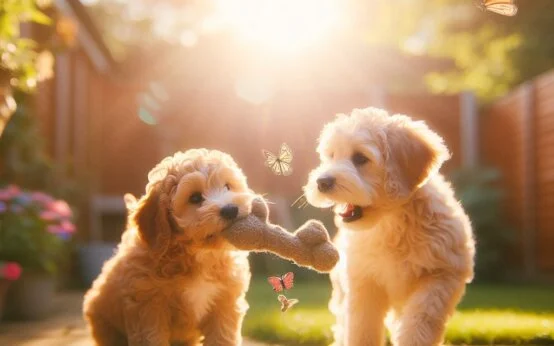 Mini Labradoodle: A Complete Guide
Mini Labradoodle: A Complete Guide 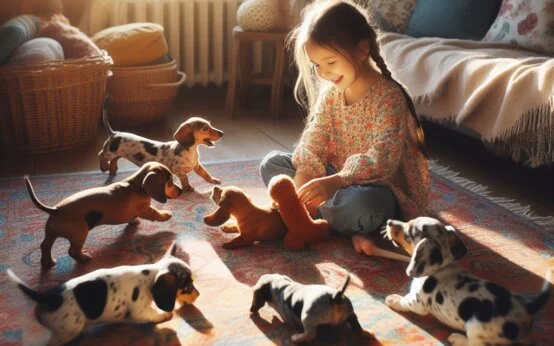 Dapple Dachshund: A Unique and Lively Breed
Dapple Dachshund: A Unique and Lively Breed 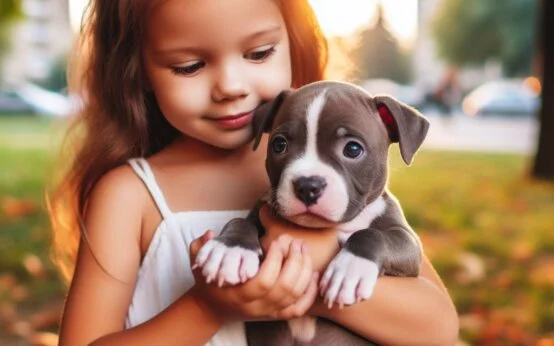 Pocket Pitbull: A Compact Canine Companion
Pocket Pitbull: A Compact Canine Companion  Preparing for an Adventure: A Golden Retriever Packs Its Suitcase
Preparing for an Adventure: A Golden Retriever Packs Its Suitcase 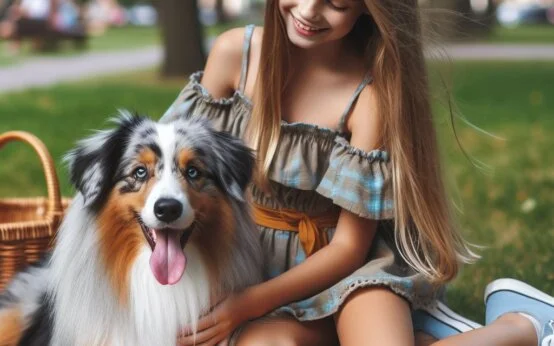 The Blue Merle Australian Shepherd: A Captivating and Unique Breed
The Blue Merle Australian Shepherd: A Captivating and Unique Breed 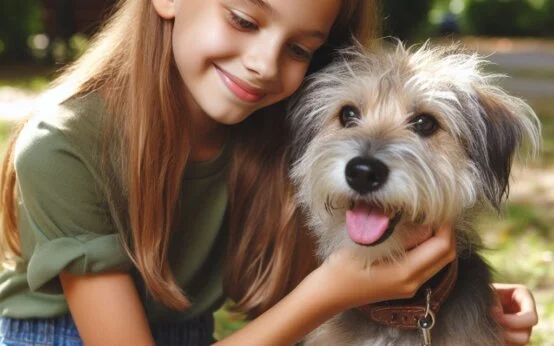 Terrier Mix: A Versatile and Energetic Canine Companion
Terrier Mix: A Versatile and Energetic Canine Companion  Mini Labradoodle: A Complete Guide
Mini Labradoodle: A Complete Guide 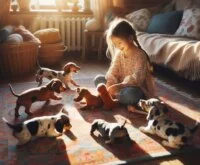 Dapple Dachshund: A Unique and Lively Breed
Dapple Dachshund: A Unique and Lively Breed  Pocket Pitbull: A Compact Canine Companion
Pocket Pitbull: A Compact Canine Companion  Preparing for an Adventure: A Golden Retriever Packs Its Suitcase
Preparing for an Adventure: A Golden Retriever Packs Its Suitcase 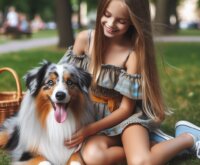 The Blue Merle Australian Shepherd: A Captivating and Unique Breed
The Blue Merle Australian Shepherd: A Captivating and Unique Breed 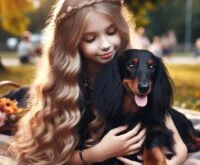 Long Haired Dachshund: A Guide to This Charming Breed
Long Haired Dachshund: A Guide to This Charming Breed
sliicx
8x2n9u
Very interesting information!Perfect just what I was
looking for!Blog money